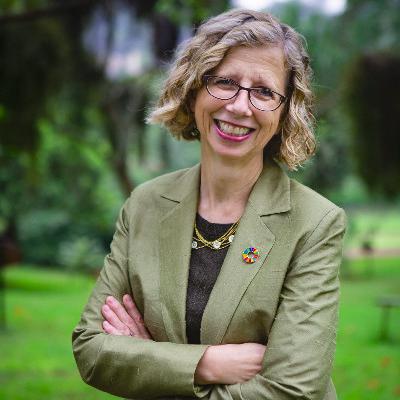By Pita Ligaiula in Glasgow
The rest of the world must play its part in slowing climate change and helping island states to adapt to its impacts says Inger Andersen Under-Secretary-General of the United Nations and Executive Director of the UN Environment Programme (UNEP).
Speaking at the COP 26 High-Level Event organised by Pacific Islands Forum Saturday, Andersen said nations must pledge stronger cuts to emissions.
“Make good on adaptation finance. Finalise the Paris Agreement rulebook. Ensure the ocean is more prominent in climate discussions – because the ocean and its health is integral to the heritage, economies and livelihoods of Small Island Developing States, and crucial to the world’s climate.
“But you are not passive victims in this global challenge.
“As humanity seeks to navigate to safer shores, the Pacific voice holds a moral clarity that is undeniable. Continue to raise that righteous voice. We at the United Nations will stand with you and by you. And together, we can, —as master navigators, — continue the voyage towards sustainability, equity and justice,” she said.
Andersen said the UN will support the Pacific in its fight against the impacts of climate change.
“So, I am not here to describe your struggles to you. You are living with climate change. You are sounding the alarm on climate change. You are fighting climate change. I am here to tell you that we, at the United Nations, have heard you and stand with you,” she said.
UNEP’s Emissions Gap Report made it clear that the nations of the world must almost halve greenhouse gas emissions in the next eight years to have a shot at 1.5 degrees – a temperature limit that could give the islands a fighting chance.
“We know the biggest emitters have the biggest responsibility here. We will continue to remind them of this.
But as you know better than most, climate change is already here. We must step up efforts to adapt, even if we limit global temperature rise,” she said.
The UNEP Adaptation Gap Report, released last Thursday, made clear, adaptation finance is still too weak.
“As a bare minimum, the goal of providing USD$100 billion per year in climate finance to developing nations must be met – to both boost adaptation and help developing nations strike out on a low-carbon development pathway. But the actual costs of adaptation run far higher. Again, we will remind the world of their responsibilities in this regard, including on loss and damage.
However, for the finance to flow and the right projects to be set in motion, countries need to set clear adaptation goals and targets, including through capacity building programmes,” she said.
Andersen said UNEP, through the Asia Pacific Adaptation Network, is developing a framework to advance this idea.
“And idea that would dovetail with National Adaptation Plans. We at UNEP are committed to helping Pacific Island nations adapt, and other specific projects are in the works to do just that,” she said.
SOURCE: PACNEWS














[…] to rises in sea level brought about by climate change. UNDP/LUKE MCPAKE / RNZ PACNEWS 10 November 2021 at […]